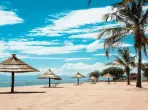
What is there to see in Malawi?
Malawi, officially known as the Republic of Malawi, is located in southeastern Africa and is one of the few landlocked countries in the region. The country was formerly known as Nyasaland. Malawi shares borders with Zambia, Tanzania, and Mozambique. Malawi has an area of over 118,000 km² and an estimated population of 18,091,575 (as of July 2016). The capital of Malawi is Lilongwe, the country's largest city; the second largest city is Blantyre, the third is Mzuzu, and the fourth is its former capital Zomba. Malawi is also known as the "Warm Heart of Africa".

Want to visit Malawi? Contact us, we will help you get a visa in the shortest possible time at an attractive price!
Which cities to visit in Malawi?
It is the political capital of the Republic of Malawi and is the seat of government.
This city, in turn, is the economic capital and largest city with an interesting center, decent nightlife and music, many hotels from elegant to vacation homes, and a vibrant street and market culture.
The largest city in the north of the country, where many stop to withdraw cash on their way to Nkhata Bay or further south and the Tanzanian border.
A town near the Misuku Hills and Lake Malawi, rapidly developing after the discovery of a uranium mine in 2009.
A town that was formerly known as Fort Johnston. It has many resorts and hostels on the shores of Lake Malawi.
In Nkotakota, located on the shores of Lake Malawi in the Central Region, explorer David Livingstone spent much of his mission to combat the slave trade.
Malawi's old colonial capital with British architecture, a university and the remarkable Zomba Plateau that extends west of the city.
Which national parks to see in Malawi?
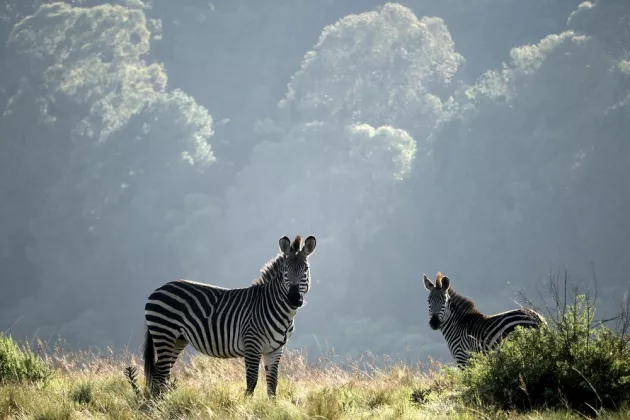
Liwonde National Park
The best national park in the country is Liwonde, 205 km southeast of the capital, on the shores of Lake Malombe. Here you can see many animals and enjoy beautiful scenery. The park includes part of the lake shore and the Shire River, where hippos and crocodiles live. Elephants, antelopes and rhinos can also be found in the park. A large area of the park is closed during the rainy season, but tourist camps are open all year round. The park is guarded by a special group of gamekeepers.
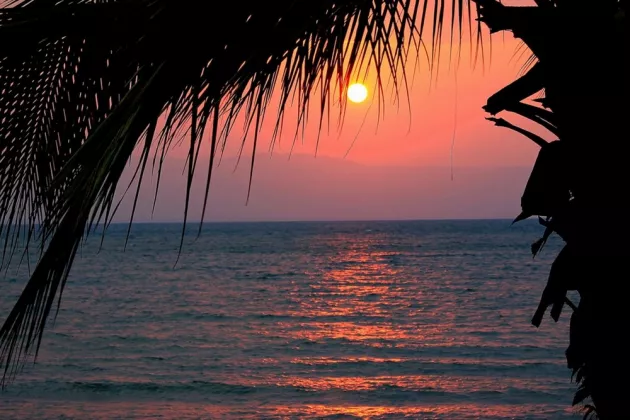
Lake Malawi National Park
Lake Malawi National Park was inscribed on the UNESCO Natural Heritage List in 1984. The park is located at the southern end of the deep and vast Lake Malawi (Nyasa), surrounded by mountains and characterized by clear water. It is one of Africa's Great Lakes, covering a vast area of the country and is the third largest. In 1859, the famous African explorer David Livingstone saw this lake for the first time and was amazed by its beauty. He called it the Lake of Stars for the countless celestial lights reflected in the clear water. The lake is home to about 1000 species of fish. Yachting, diving and snorkeling are available here, as well as great fishing and wonderful sandy beaches. The best time for scuba diving is from August to December. The water in the lake is warm and visibility is excellent.
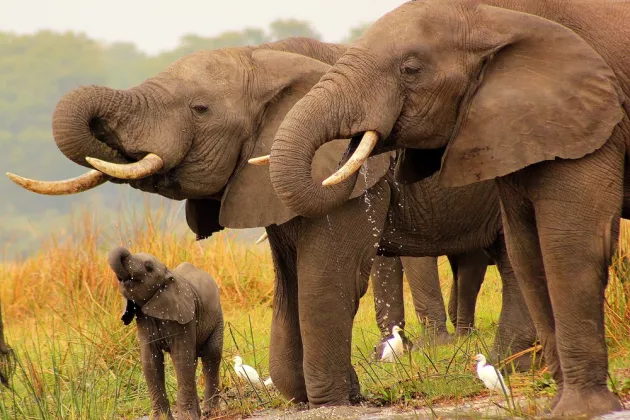
Nkotakota Nature Reserve
The Nkotakota Reserve is located on steep hills about 30 km west of Nkotakota town. The Bua River, which flows through the reserve, is a salmon spawning ground. The park is home to elephants, buffalo, hippos, crocodiles, zebras, many species of antelope, lions, leopards and hyenas.
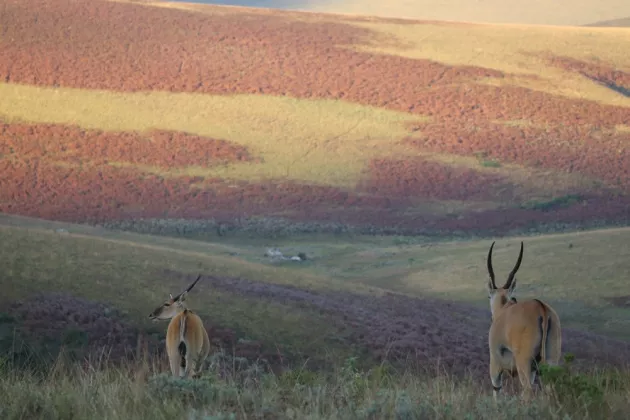
Nyika National Park
Nyika National Park is located in the far north of the country and covers an area of more than 3 thousand square kilometers. Its territory is about a third of the plateau, located at an altitude of 2100-2600 meters. The climate here is temperate, with cool nights and warm days, and it gets colder between June and August. The park is famous for its marvelous flowers and the variety of animals that inhabit its territory. It can be visited at any time of the year, but during the rainy season (January-April) the access roads are only accessible to off-road vehicles.

Want to visit Malawi? Contact us, we will help you get a visa in the shortest possible time at an attractive price!
Vaccination against yellow fever is mandatory for all tourists. Vaccination against typhoid, hepatitis A and B, and rabies is also recommended. Malawi is considered a risk zone for many dangerous diseases including HIV, tuberculosis, malaria, diarrhea and cholera. Most rivers and water bodies, including Lake Malawi, can be a source of schistosomiasis infection.
 Algeria
Algeria
 Angola
Angola
 Benin
Benin
 Botswana
Botswana
 Burkina Faso
Burkina Faso
 Burundi
Burundi
 Cameroon
Cameroon
 Cape Verde Islands
Cape Verde Islands
 Chad
Chad
 Congo Rep.
Congo Rep.
 Côte d'Ivoire
Côte d'Ivoire
 Egypt
Egypt
 Equatorial Guinea
Equatorial Guinea
 Ethiopia
Ethiopia
 Djibouti
Djibouti
 Gabon
Gabon
 Ghana
Ghana
 Guinea
Guinea
 Kenya
Kenya
 Mali
Mali
 Morocco
Morocco
 Mozambique
Mozambique
 Namibia
Namibia
 Niger
Niger
 Rwanda
Rwanda
 Sao Tome and Principe
Sao Tome and Principe
 Sierra Leone
Sierra Leone
 Southern Sudan
Southern Sudan
 South Africa
South Africa
 Sudan
Sudan
 Tanzania
Tanzania
 Togo
Togo
 Uganda
Uganda
 Zimbabwe
Zimbabwe
 Zambia
Zambia
News about visas in Malawi
We will contact you as soon as possible.
Kind regards,
Visa-Navigator.com team


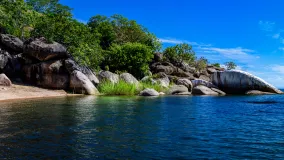
 Azerbaijan
Azerbaijan
 Belarus
Belarus
 Russia
Russia
 United Kingdom
United Kingdom
 Turkey
Turkey
 Bahrain
Bahrain
 Bangladesh
Bangladesh
 Bhutan
Bhutan
 Cambodia
Cambodia
 China
China
 Indonesia
Indonesia
 India
India
 Iran
Iran
 Kazakhstan
Kazakhstan
 Jordan
Jordan
 Kuwait
Kuwait
 Laos
Laos
 Lebanon
Lebanon
 Maldives
Maldives
 Mongolia
Mongolia
 Myanmar
Myanmar
 Nepal
Nepal
 Oman
Oman
 Pakistan
Pakistan
 Philippines
Philippines
 Saudi Arabia
Saudi Arabia
 South Korea
South Korea
 Sri Lanka
Sri Lanka
 Tajikistan
Tajikistan
 Thailand
Thailand
 Turkmenistan
Turkmenistan
 UAE
UAE
 Uzbekistan
Uzbekistan
 Vietnam
Vietnam
 Yemen
Yemen
 Bolivia
Bolivia
 Antigua and Barbuda
Antigua and Barbuda
 Bahamas
Bahamas
 Canada
Canada
 Cuba
Cuba
 Montserrat
Montserrat
 Puerto-Rico
Puerto-Rico
 St. Kitts and Nevis
St. Kitts and Nevis
 USA
USA
 Australia
Australia
 Papua New Guinea
Papua New Guinea
 New Zealand
New Zealand
